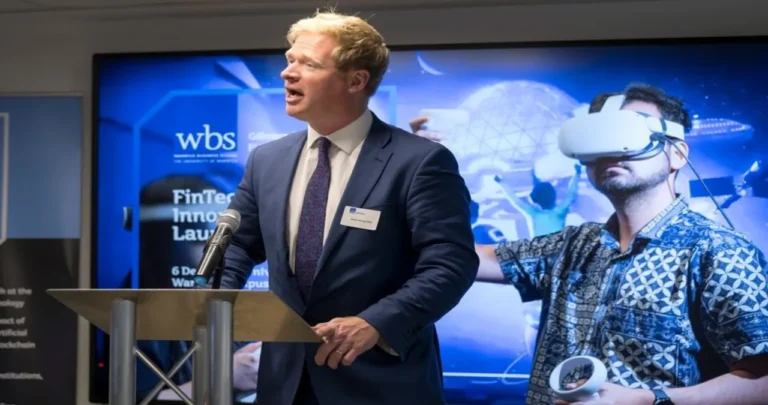Table of Contents
ToggleIn today’s digital world, financial management is becoming increasingly complex. With numerous investment opportunities, markets, and financial products available, it’s easy to feel overwhelmed. However, “My Money Would Be NYT” has recently emerged as a concept to watch in the financial landscape. This phrase, which blends the idea of personalized financial decision-making with an innovative, future-focused approach, can significantly affect how individuals view and manage their wealth. This article will explore why “My Money Would Be NYT” matters, how it impacts personal wealth, and why it might become a critical factor in your financial future.
What Does “My Money Would Be NYT” Mean?

The phrase “My Money Would Be NYT” might sound unusual at first glance, but it is profoundly relevant for individuals looking to make informed financial decisions. “NYT refers to the New York Times as a symbol of credibility, trust, and authority in the media world. When applied to money, it can be interpreted as a metaphor for high-level financial strategies, well-researched investments, and wealth decisions backed by knowledge, insight, and responsibility.
In other words, “My Money Would Be NYT” reflects ensuring that your financial choices are made with the same level of thoughtfulness, credibility, and thorough analysis that the New York Times applies to its journalistic efforts. This aligns with “smart money,” emphasizing informed decision-making and strategic investments to build long-term wealth.
Understanding the Concept of “My Money Would Be NYT”
“My Money Would Be NYT” is a catchy phrase and a financial mindset that advocates for a well-informed, strategic, and responsible approach to wealth management, just like the New York Times conducts extensive research and reporting to ensure accuracy and reliability, individuals who embrace this mindset focus on gathering credible financial information, utilizing expert advice, and analyzing market trends before making financial decisions.
Essentially, this mindset aligns with building wealth through thoughtful, well-informed decisions. It recognizes that sound financial practices are not just about quick profits but about long-term success and security.
How “My Money Would Be NYT” Impacts Personal Wealth
The impact of “My Money Would Be NYT” on personal wealth can be profound. Here are a few ways it plays a significant role in shaping one’s financial future:
- Encourages Responsible Financial Decision-Making
When individuals adopt the mindset of “My Money Would Be NYT,” they are more likely to make responsible financial decisions. This means they will avoid impulsive or emotional financial choices, such as chasing risky investments without understanding the risks involved. Instead, they prioritize careful research, diversification, and long-term strategies for wealth accumulation.
For example, when deciding on investments, those who think “My Money Would Be NYT” would carefully consider financial instruments like stocks, bonds, and real estate, relying on trusted resources to understand their potential risks and rewards. This could result in lower exposure to market volatility and a higher likelihood of financial success over time.
- Promotes Financial Literacy and Education
“My Money Would Be NYT” underscores the importance of financial literacy. Instead of relying on hearsay or trends, individuals who adopt this approach are dedicated to educating themselves about the financial markets, investing principles, and personal finance nuances. This shift from passive consumerism to active financial education empowers individuals to make smarter financial decisions.
Increased financial literacy leads to more informed investment choices, better budget management, and an overall understanding of how to optimize personal wealth. By keeping abreast of the latest developments in the financial world, individuals are better equipped to handle economic fluctuations and capitalize on opportunities.
- Builds Long-Term Financial Security
As the New York Times would analyze a story, one key benefit of thinking about your money is the focus on long-term goals. Just as the NYT reports in-depth on major events with a long-term perspective, individuals who embrace this philosophy aim to build wealth that will last for generations. Short-term thinking, focusing solely on immediate returns or quick wins, is often replaced by a vision for lasting financial success.
Adopting a “My Money Would Be NYT” approach means focusing on retirement savings, creating emergency funds, and building diversified portfolios that offer stability and consistent growth over time. This long-term vision is essential for personal financial security.
- Encourages Transparent Financial Practices
Transparency is one of the most crucial aspects of successful financial management, and the “My Money Would Be NYT” philosophy emphasizes this. Just as the New York Times prides itself on accurate, clear, and transparent reporting, individuals who take this approach to their finances will likely adopt transparent strategies. This includes maintaining clear records, understanding all investment fees, and being transparent about debt and financial obligations.
Transparency leads to better accountability in financial practices. Whether it’s budgeting, investing, or managing debt, transparent financial decisions reduce the likelihood of financial surprises down the road, such as hidden fees, unexpected tax liabilities, or poorly performing investments.
- Helps in Avoiding Common Financial Mistakes
Many individuals make financial mistakes simply because they need more knowledge or resources to understand the intricacies of wealth management. Common errors include:
- Failing to save adequately.
- Not understanding the risks of specific investments.
- Relying too heavily on high-interest debt.”
My Money Would Be NYT” helps individuals avoid these pitfalls by promoting a culture of thoughtful financial planning. By keeping up with the latest financial trends, seeking professional advice, and studying past financial crises, individuals can learn from others’ mistakes and avoid costly errors.
Practical Steps to Implement “My Money Would Be NYT” in Your Life
If you’re wondering how you can apply the principles of “My Money Would Be NYT” to your financial strategy, here are a few actionable steps:
- Start With Financial Education
The first step is to invest in your financial education. Whether reading reputable financial news sources, taking courses on personal finance, or attending seminars, the more you learn, the better you can make informed decisions about your wealth. Key areas to focus on include budgeting, investing, understanding credit, and estate planning.
- Develop a Long-Term Financial Plan
Building wealth takes time. Create a comprehensive financial plan with clear long-term goals, such as saving for retirement, purchasing a home, or funding your children’s education. Regularly assess and adjust your economic strategy as needed.
- Diversify Your Investments
Don’t put all your eggs in one basket. A diversified portfolio reduces risk and increases the potential for steady growth. To build a well-rounded strategy, look into stocks, bonds, mutual funds, and real estate investments.
- Consult Financial Experts
One of the benefits of the “My Money Would Be NYT” mindset is recognizing when to seek expert advice. A financial advisor, tax consultant, or estate planner can provide invaluable insights you might miss. Just as the New York Times employs experts to ensure accuracy in its reporting, you can benefit from the expertise of professionals in managing your wealth.
- Monitor Your Progress
Lastly, regularly review your financial portfolio. Monitoring your investments, savings, and budget allows you to track your progress, make adjustments, and keep your wealth-building strategy on track.
The Future of “My Money Would Be NYT” in Financial Planning
As we move forward in a rapidly changing global economy, the importance of informed financial decision-making will only grow. “My Money Would Be NYT” reflects a shift towards responsible, educated, and long-term thinking in personal wealth management. With the increasing availability of financial information, the rise of robo-advisors, and the growing importance of financial literacy, this approach will likely become more popular and accessible to people from all walks of life.
In the future, the concept of “My Money Would Be NYT” could help individuals navigate the complexities of modern finance, making better-informed decisions that will lead to more excellent financial stability and success.
Conclusion
“My Money Would Be NYT” is more than just a catchy phrase—it represents a powerful approach to wealth management, emphasizing responsibility, education, and long-term thinking. By adopting this mindset, individuals can build sustainable wealth, make informed decisions, and avoid common financial mistakes. With the right strategies, tools, and mindset, anyone can embrace “My Money Would Be NYT” principles to enhance their wealth and ensure long-term financial security.
By following the guidelines outlined in this article and staying committed to learning and adapting, you can unlock the full potential of your financial future.
FAQS
Here are five frequently asked questions (FAQs) about the content of “Why ‘My Money Would Be NYT’ Matters: Understanding Its Impact on Personal Wealth”:
- What does “My Money Would Be NYT” mean in financial terms?
“My Money Would Be NYT” refers to adopting a financial approach inspired by the credibility, thoroughness, and responsibility seen in The New York Times’ journalistic practices. It emphasizes making informed, thoughtful financial decisions based on solid research and expert advice, similar to how the NYT ensures accuracy and reliability in its reporting.
- How does “My Money Would Be NYT” impact personal wealth?
This mindset encourages individuals to make informed and responsible financial decisions, avoid impulsive choices, and build wealth for the long term. It promotes financial literacy, transparency, and strategic investment, contributing to better economic security and a more stable economic future.
- How can I implement the “My Money Would Be NYT” approach in my own life?
To apply this approach, start by educating yourself on financial topics, developing a long-term economic plan, diversifying your investments, seeking professional advice when needed, and regularly monitoring your financial progress. These steps help you manage your wealth with knowledge and foresight, ensuring decisions align with your long-term goals.
- Why is financial literacy critical in the “My Money Would Be NYT” philosophy?
Financial literacy is the foundation of this philosophy because it empowers individuals to understand their financial options, make informed choices, and avoid common financial mistakes. Well-informed people are likelier to make decisions that contribute to sustainable wealth growth and economic security.
- Can “My Money Would Be NYT” help avoid common financial mistakes?
Adopting this mindset can help avoid mistakes such as impulsive investing, accumulating unnecessary debt, or not saving adequately for the future. By focusing on educated decision-making and long-term strategies, individuals reduce the risk of costly errors and set themselves up for more reliable financial growth.















